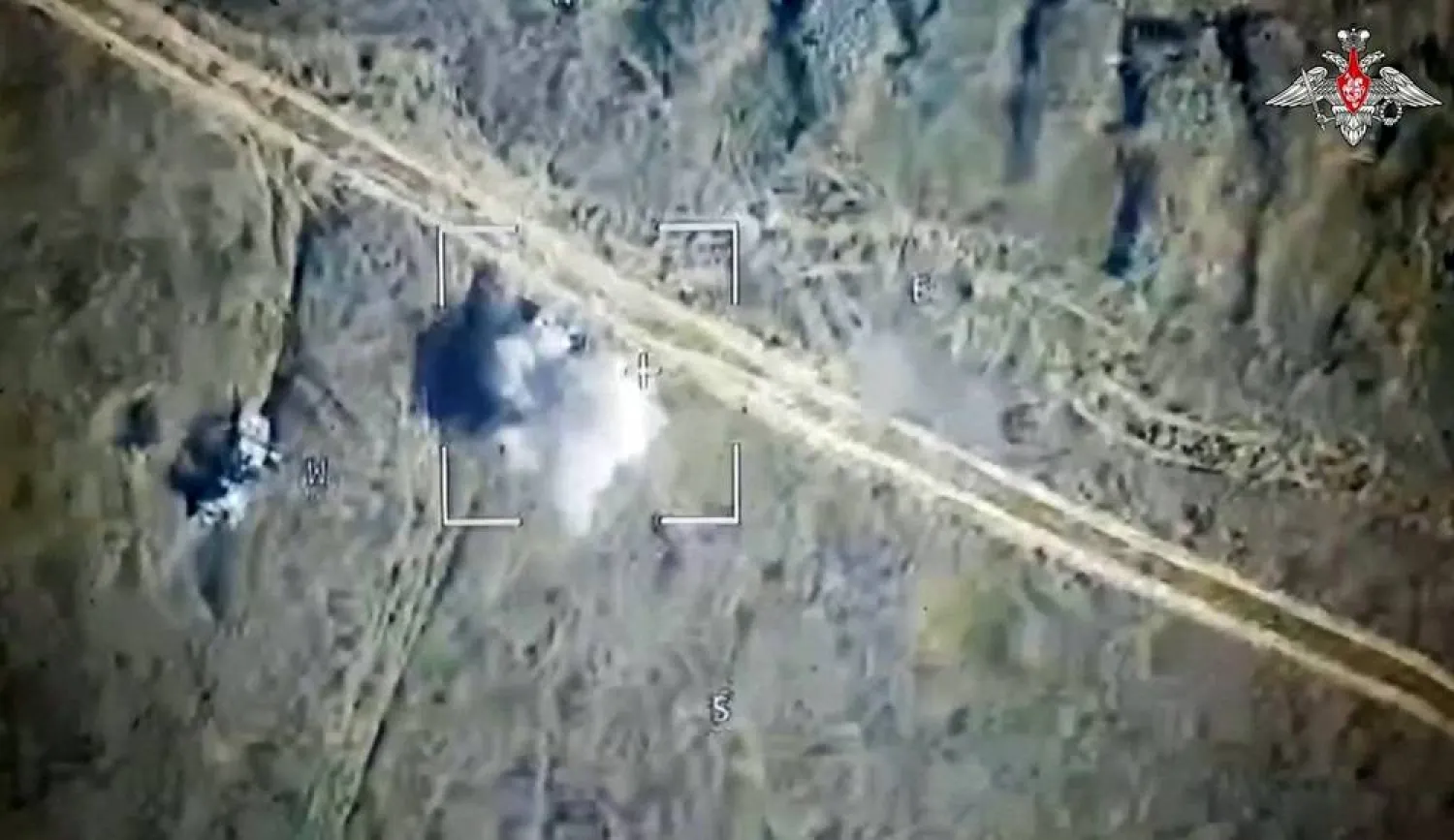Russian President Vladimir Putin on Wednesday described a Ukrainian incursion into the country's southwestern Kursk region as a “large-scale provocation” as his officials asserted that they were fighting off cross-border raids for a second day. Ukrainian officials remained silent about the scope of the operation.
Putin met with his top defense and security officials to discuss what he called the “indiscriminate shelling of civilian buildings, residential houses, ambulances with different types of weapons.” He instructed the Cabinet to coordinate assistance to the Kursk region. The fighting is about 500 kilometers (320 miles) from Moscow.
Army chief of staff Valery Gerasimov told Putin at the meeting via video link that about 100 Ukrainian soldiers had been killed in the battle and more than 200 wounded, Russian news agencies reported.
The Ukrainian shelling, meanwhile, killed at least two people — a paramedic and an ambulance driver — and injured 24, Russian Foreign Ministry spokeswoman Maria Zakharova said in a statement.
It was not possible to independently verify the Russian claims. Disinformation and propaganda have played a central role in the war, now in its third year.
The head of the region urged residents to donate blood due to the intense fighting. “In the last 24 hours, our region has been heroically resisting attacks” by Ukrainian fighters, acting Gov. Alexei Smirnov said on Telegram, adding that all emergency services were on high alert.
Smirnov said authorities had evacuated more than 200 people from areas under shelling, while several thousand others left in their own vehicles.
If confirmed, the cross-border foray would be among Ukraine's largest since Russia's full-scale invasion in February 2022, and unprecedented for its deployment of Ukrainian military units.
Kyiv's aim could be to draw Russian reserves to the area, potentially weakening Moscow’s offensive operations in several parts of Ukraine’s eastern Donetsk region where Russian forces have increased attacks and are advancing gradually toward operationally significant gains.
But it could risk stretching outmanned Ukrainian troops further along the front line, which is more than 1,000 kilometers (620 miles) long.
Even if Russia were to commit reserves to stabilize the new front, given its vast manpower and the relatively small number of Ukrainian forces engaged in the operation, it would likely have little long-term impact.
However, the operation could boost Ukrainian morale at a time when Kyiv's forces are facing relentless Russian attacks and are expected to face more in coming weeks.
Several Ukrainian brigades stationed along the border region said they could not comment. Ukraine's Defense Ministry and General Staff said they would not comment.
Russian forces have swiftly repelled previous cross-border incursions, but not before they caused damage and embarrassed authorities.
The Russian Defense Ministry said Tuesday that up to 300 Ukrainian troops, supported by 11 tanks and more than 20 armored combat vehicles, had crossed into Russia and suffered heavy losses.
It said Wednesday that military and border guard troops “continued to destroy Ukrainian military units in the areas alongside the border in the Kursk region.”
The ministry said Russian forces backed by artillery and warplanes “didn't allow the enemy to advance deeper into the territory of the Russian Federation.”
Open-source monitors have also not been able to verify the claims. The US-based Institute for the Study of War could not verify whether damaged and abandoned armored vehicles shown in geolocated video 7 kilometers (4 miles) north of the border west of Lyubimovka in the Kursk region were Ukrainian.
The think tank also cast doubt on video shared by Russian military bloggers claiming to show the aftermath of the Ukrainian raids. Most of the damage shown “appears to be the result of routine Ukrainian shelling and does not indicate that there was ground activity in the area,” it said in its daily report.
Responsibility for previous incursions into Russia’s Belgorod and Bryansk regions has been claimed by two murky groups: the Russian Volunteer Corps and the Freedom of Russia Legion, which are made up of Russian citizens and have fought alongside Ukrainian forces.
Some Russian war bloggers who have proved knowledgeable about the war said that Ukrainian soldiers were in Kursk.
Rybar, a Telegram channel run by Mikhail Zvinchuk, a retired Russian Defense Ministry press officer, said Ukrainian troops had seized three settlements in the region and continued to fight their way deeper into it.
Another pro-Kremlin military blog, Two Majors, claimed that Ukrainian troops had advanced up to 15 kilometers (9 miles) into the region.
Neither claim could be independently verified.
The Kursk region’s border with Ukraine is 245 kilometers (150 miles) long, making it possible for saboteur groups to launch swift incursions and capture some ground before Russia deploys reinforcements.









